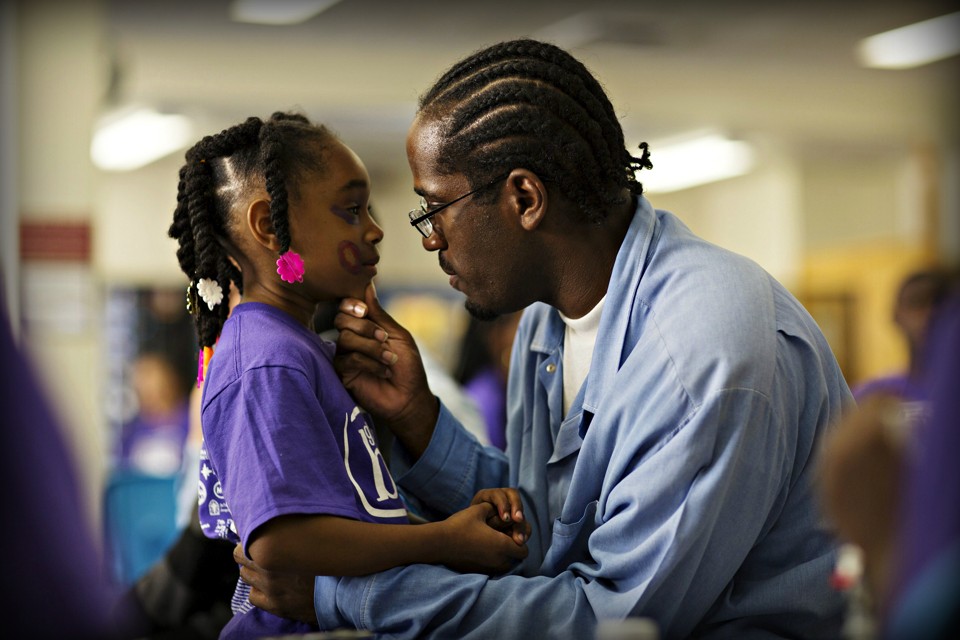How Parental Incarceration Affects a Child’s Education
“Through it all, children suffer.”

An inmate looks at his daughter during a special Father's Day visit as part of the "Get On The Bus" program at California Men's Colony in San Luis Obispo in May 2015. Mario Anzuoni / Reuters
This past summer, The Atlantic’s Sarah Yager wrote about the rising popularity of prison nurseries as a means of saving costs, enhancing morale, and reducing recidivism among the ever-growing female inmate population. Such nurseries are, however, still fairly rare, and generally reserved for the women who give birth when they’re already behind bars and have babies 18 months or younger. Once the babies grow past that age, they’re sent out into the world to join the 3 million children in the United States who currently have a parent in custody—a population that, for policymakers, “can fade into the background.”
These children do indeed fall off the public radar, as do the 2 million or so additional U.S. children who’ve previously had a parent in prison, according to a recent Child Trends report. All in all, the report’s researchers, David Murphey and P. Mae Cooper, analyzed the National Survey of Children’s Health to conclude that more than 5 million kids—or one in 14 U.S. children—have at one time or another experienced parental incarceration. And that number, they argue, “is almost certainly an underestimate.” Unsurprisingly, parental incarceration is most prevalent among black, poor, and rural children.
Research has long found that children who have (or have had) a parent behind bars tend to suffer from problems including poor health, behavior challenges, and grade retention, but it’s been difficult to suss out the degree to which those issues are attributable more generally to other realities common in communities with high incarceration rates. “It can be challenging to disentangle the effects of parental incarceration from … other risk factors, such as extreme poverty,” Murphey and Cooper write. “Complicating matters further, parental incarceration can also exacerbate these associated risk factors, through loss of income, for example.”
The new report strives to do that disentangling and identify any outcomes in children that are uniquely associated with parental incarceration. And while much of the report’s findings on health outcomes and social relationships are inconclusive, one of the few risk factors that does seem to have a direct association with parental incarceration has to do with the kids’ education. Children of all ages were significantly more likely to have problems in school, Children's Education in the Age of Mass Incarceration - The Atlantic:
